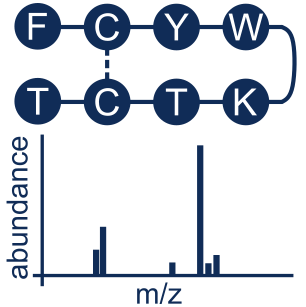
Baby Rorielyn T. Dimayacyac-Esleta, PhD
Biochemistry
Assistant Professor
Deputy Director for Administration (DDA), Institute of Chemistry
Academic Group Head, Biochemistry
Email: btdimayacyacesleta@up.edu.ph
Office Room and Phone No.: T234, Local 3669
Lab Room and Phone No.: R211-212, Local 3683
Research Laboratory: Clinical Proteomics Laboratory
Education & Background
| Undergraduate | BS Chemistry, UP Diliman, 2003 |
| Graduate | PhD Chemistry, UP Diliman, 2017 |
Teaching
| Chem 16: General Chemistry I |
| Chem 40: Elementary Biochemistry |
| Chem 145: Principles of Biochemistry I: Structure and Function of Biological Macromolecules |
| Chem 146: Principles of Biochemistry II: Pathways, Mechanisms, and Regulation Course Detail |
| Chem 240: Advanced Biochemistry |
Research

Research Focus
Quantitative Proteomics & Cancer Biomarker Development
The Clinical Proteomics Laboratory aims to contribute to the proper management of cancer. Using quantitative proteomics, the Lab can identify candidate proteins that can be applied as biomarkers for diagnosis, prognosis, and treatment monitoring, and can be used as drug targets for identification of new treatment strategies. Our research includes the analysis of molecular mechanisms, and regulatory pathways to reveal critical processes involved in acquired and intrinsic drug resistance, and metastatic transformation. The Lab, together with collaborators from the National Institute of Molecular Biology and Biotechnology, Institute of Chemistry Academia Sinica, and Lung Center of the Philippines established the workflow and facility equipped for quantitative proteomics. The established Proteomics Lab can extend its application to other cancer types or other diseases, and to other research fields with the aim to use the technique for improvement of health and safety in the community.
Selected Publications
(1) B. R. Dimayacyac-Esleta, V. Pondevida, L. Zarate, B. J. Porras, F. Mira, H. G. Luna and E. Prieto. Preliminary Study to Obtain Insights on the Proteomic Profile of Filipino Non-Small Cell Lung Carcinoma (NSCLC). Philippine Journal of Science 2021, 150 (6B), 1611-1625.
(2) B. R. Dimayacyac-Esleta, C. F. Tsai, R. B. Kitata, P. Y. Lin, W. K. Choong, T. D. Lin, Y. T. Wang, S. H. Weng, P. C. Yang, S. Arco, T. Y. Sung and Y. J. Chen. Rapid High-pH Reverse Phase StageTip for Sensitive Small-Scale Membrane Proteomic Profiling. Anal. Chem. 2015, 87, 12016-12023. https://doi.org/10.1021/acs.analchem.5b03639
(3) R. B. Kitata, B. R. Dimayacyac-Esleta, W. K. Choong, C. F. Tsai, T. D. Lin, C. C. Tsou, S. H. Weng, Y. J. Chen, P. C. Yang, S. Arco, A. Nesvizhskii, T. Y. Sung and Y. J. Chen. Mining Missing Membrane Proteins by High-pH Reverse-Phase StageTip Fractionation and Multiple Reaction Monitoring Mass Spectrometry. J. Proteome Res. 2015, 14, 3658-69. https://doi.org/10.1021/acs.jproteome.5b00477

